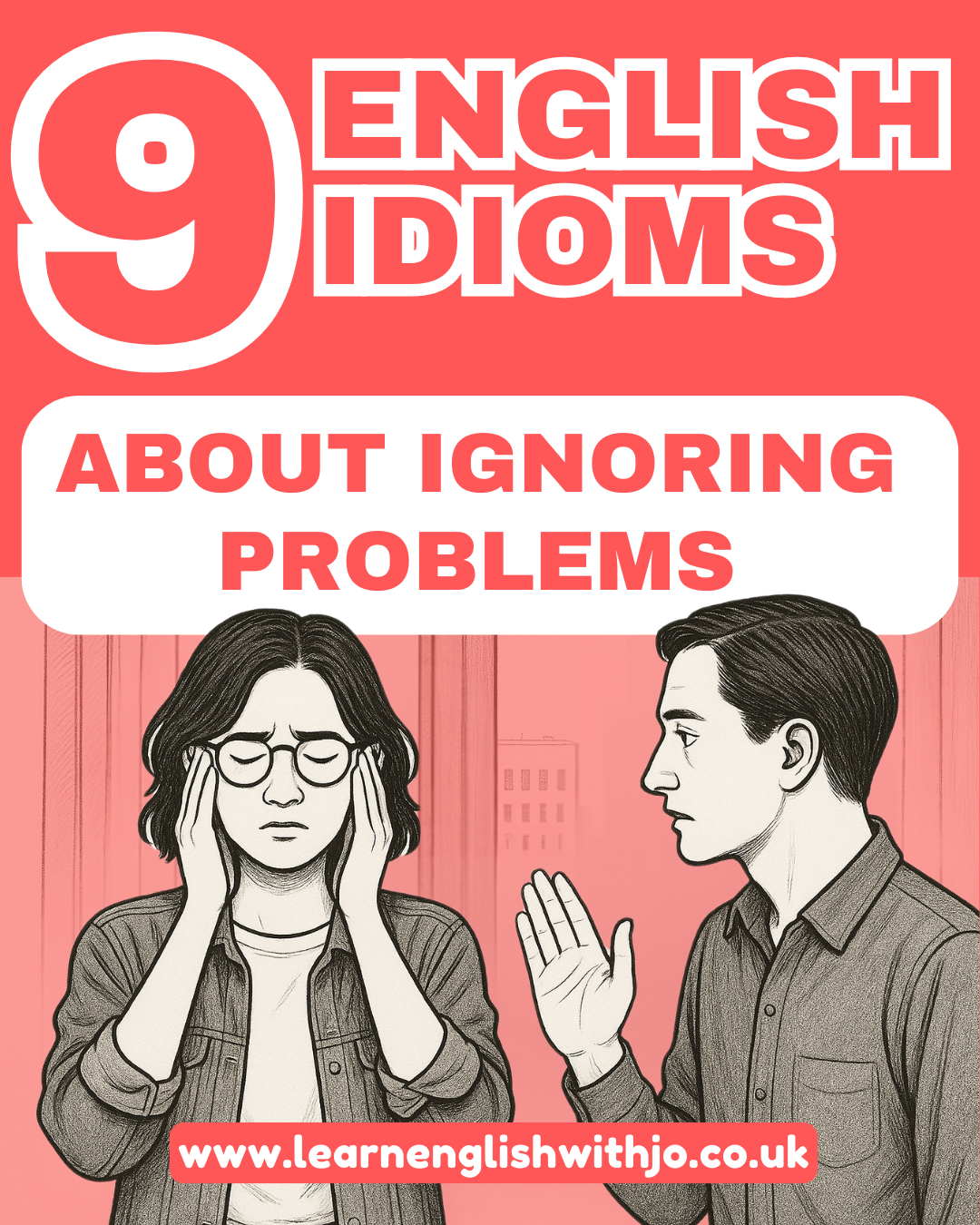9 English Idioms About Ignoring Problems
(and Pretending Everything’s Fine)
We all do it sometimes, ignore the obvious, avoid difficult conversations, or hope that a problem will magically disappear if we just don’t look at it. But what do you say in English when you want to describe that behaviour?
In this post, you’ll learn 9 useful idioms and expressions for talking about avoidance, denial, and ignoring uncomfortable truths. These are great for everyday conversation, workplace English, and understanding films, books or TV shows.
Let’s take a look.
1. To turn a blind eye
To deliberately ignore something, especially something wrong or unacceptable.
Example: The manager turned a blind eye to the bullying complaints.
This is often used when someone in a position of responsibility chooses not to take action.
2. To bury your head in the sand / put your head in the sand
To ignore a difficult situation and hope it goes away on its own.
Example: You can’t just bury your head in the sand. The deadline is tomorrow.
This idiom suggests avoidance and denial, often with a slightly critical tone.
3. Right under your nose
Something very obvious or easy to notice, but you miss it or ignore it.
Example: The book I was looking for was right under my nose the whole time.
We use this when we overlook something that's been there all along.
4. To look the other way
To deliberately ignore something, especially something unfair, unethical, or wrong.
Example: She looked the other way when her friend cheated on the test.
This idiom implies silent complicity, pretending not to see so you don’t have to deal with it.
5. Elephant in the room
A big, obvious problem that nobody wants to talk about.
Example: There was an awkward silence. No one wanted to mention the elephant in the room: their breakup.
A very common idiom in both personal and professional contexts.
6. To sweep something under the rug / carpet
To hide or ignore something embarrassing or unpleasant.
Example: They tried to sweep the financial problems under the rug instead of dealing with them.
Often used when people want to protect appearances or avoid public attention.
7. To gloss over something
To talk about something in a way that hides its seriousness or skips the negative parts.
Example: The report glossed over the safety issues and focused only on the good news.
This idiom suggests being vague or dishonest in order to avoid discomfort.
8. To close your eyes to something
To choose not to notice or acknowledge a problem.
Example: Many governments closed their eyes to the growing housing crisis.
Similar to “turn a blind eye,” but slightly more emotional or dramatic.
9. Out of sight, out of mind
If you don’t see something, it’s easier to forget about it or ignore it.
Example: I put my phone in another room while I was working. Out of sight, out of mind.
Often used when avoiding distractions or uncomfortable reminders.
Avoidance is a very human reaction, and English has plenty of idioms to talk about it. Whether you're describing someone ignoring a problem at work, pretending a relationship issue doesn’t exist, or just trying not to think about something inconvenient, these expressions will help you sound more natural and expressive in English.

